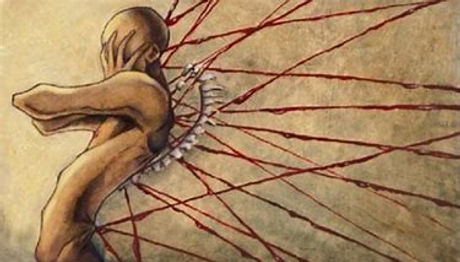
Odyssey Program
Addiction is an illness, not a choice!
Let us help you with medication-assisted treatment!
406-563-7962

William M Reiter, MD, FACP
Since 2012 the Reiter Foundation has been focusing its primary attention on the development of best practices for the treatment of opioid (opiate), methamphetamine, cocaine and alcohol use disorders. We bring together Medication-Assisted Treatment (MAT) with affiliated, mental health, behavioral health and addiction recovery services. Expedited appointments are available during pregnancy and for people released from incarceration, residential programs or hospitals.
We understand that addiction is an illness, not a choice. People suffering with addiction must be treated with the same dignity and compassion with which healthcare professionals should treat all those in their care.
We are calling this The Odyssey Program to remind us all that it can be a long and difficult journey to get back home, home to oneself without the influence of drugs, taking the time needed to allow the whole person to recover - a long journey that must overcome many obstacles to be successful. Odyssey is a part of a Montana not-for-profit organization.
Care is delivered in both a face-to-face setting at our office in Anaconda, Montana and through secure Internet-based visits (telemedicine) intended to reduce travel burden and to reach people living in communities without MAT prescribers. Our patients see the same medical provider each visit and we work hard to develop the rapport and trust that should be expected in every healthcare relationship. Currently, our telemedicine practice is limited to Montana.
Odyssey: a Medication-Assisted Treatment program


Why Medication-Assisted Treatment (MAT)?
"Medication-Assisted Treatment (MAT) has been found to reduce morbidity [illness] and mortality [death], decrease overdose deaths, reduce transmission of infectious disease, increase treatment retention, improve social functioning, and reduce criminal activity." *
* New England Journal of Medicine, 370(22), 2063–2066.
“The combination of buprenorphine and intensive psychosocial treatment is safe and highly efficacious [effective].” *
* The Lancet. Volume 361, Issue 9358, 662-668
Our approach emphasizes Medication–Assisted Treatment (MAT) using either buprenorphine or naltrexone formulations based on each individual's needs (for example, Subutex, Suboxone, Sublocade and Vivitrol). These are prescribed from our Anaconda, Montana office, in person or by Internet, while working closely with mental health, counseling and other recovery professionals in a person’s home community.
For those currently using opioids, very slowly tapering MAT to the lowest effective dose of medication allows people to avoid the misery of withdrawal and to better resist drug craving and relapse triggers, while giving them the time they need for recovery. See a typical patient's buprenorphine tapering dosages in the adjacent graph.
Our approach to opioid and methamphetamine use disorders

For those who are currently in remission from opioid use but who need treatment to keep them safe and minimize their risk for relapse, and for those who are suffering from methamphetamine or cocaine addiction, Medication--Assisted Treatment (MAT) approaches are also available to help.
Chronic pain and opioids
Current practices for opioid prescription have been cruel to many patients suffering with chronic pain. Suggested standards for new prescriptions of opioid medications may make sense for new patients, but not necessarily for people who have been prescribed opioids for long periods of time. Many people have had their prescriptions stopped or their dosages reduced without proper planning, causing them to suffer from severe opiate withdrawal. Another potential problem is that people get tolerant to the effects of opioids and so the dosage necessary to achieve pain control may rise to unsafe amounts. In either case - the sudden withdrawal of an opioid prescription or the development of tolerance - people can be driven to try to obtain street opioids. This often leads to desperation and even suicide. For many people, buprenorphine can effectively treat chronic pain in place of opioids and also the opioid dependence caused by having had long-term opioid treatment. *
* Anesthesia & Analgesia, Volume 127 - Issue 2;
AM J Ther, 12(5):379-84.

In addition to its clinical work, Reiter Foundation has been closely involved in medical research and healthcare policy development to improve public and professional awareness of substance use disorder treatment options.
